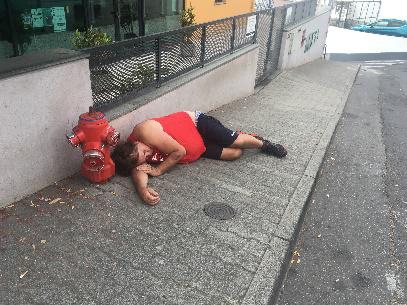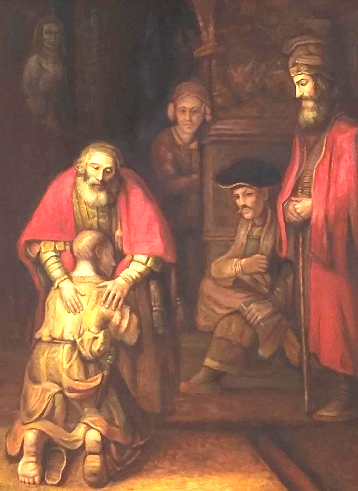FROM MY HEART TO YOUR HEART – The Opposite of Love is Indifference
by Fr. Bernardino Andrade
My niece, Ana, lived with me for some time in my Parish residence in the suburbs of San Francisco, California. Once in a while, when we had some free time, we enjoyed going to San Francisco, and spend some time in the Fisher Men’s Warf where we could eat a clam chowder from a bowl that was edible. The bowl was made of a round loaf of French bread which had a large portion of the middle cut out. It was really fun to stand or sit outside eating the clam chowder and throwing pieces of bread to the doves that were flying by or walking around us.
Ana was very creative. One day Ana told me that she would like to go to San Francisco, but get lost in San Francisco. No plans, no maps, no schedules. Just walk without any destiny.
But one day it was my turn to suggest something very different. In the same city, and walking through the same streets, I suggested:
«Ana, I would like to bring you to San Francisco to walk through the same streets, but during the night. I would like you to see San Francisco at night. I can tell you Ana, to see San Francisco at night is very depressing. The sidewalks of certain streets are full of human misery. We can see homeless men, women and children. Some are sleeping on pieces of cardboard, some are begging with babies on their laps; some are drunk, and others, slowly getting destroyed by drugs. The lack of hygiene is repugnant. This is what you are going to see in some «beautiful» streets of San Francisco. Ana… it is very depressing.» It was then, when Ana with her angelic voice told me: «Don’t worry uncle. I will put my blinders on and I wouldn’t have any problems».
On one of the Sundays when the Gospel was about the rich man and the poor Lazarus (Lk 16:19-31), I asked Ana’s permission to tell the story of us walking through the streets of San Francisco during the night, and the episode of using the blinders not to see the misery and avoiding feeling depressed. When I thought that she was going to feel embarrassed about her approach, she came to me after Mass and said: «Uncle! Next time you tell that story about the blinders, please be stronger».
In this story, Jesus doesn’t say that the rich man had caused any damage or pain to Lazarus, or that he had stolen anything from him. It simply shows the indifference of a rich man before the suffering of the poor. Some time ago I found this sentence that made me think:
«That man was so poor that the only thing he had was money».
In this story, the rich man has no name. He was only the rich man. The poor man had a name. His name was Lazarus. In the Gospel, for the followers of Jesus, helping the poor is not optional. It will be for each one of us the difference between heaven or hell.
The opposite of love is not hatred. The opposite of love is indifference.
< Love and Peace Fr. Bernardino Andrade



